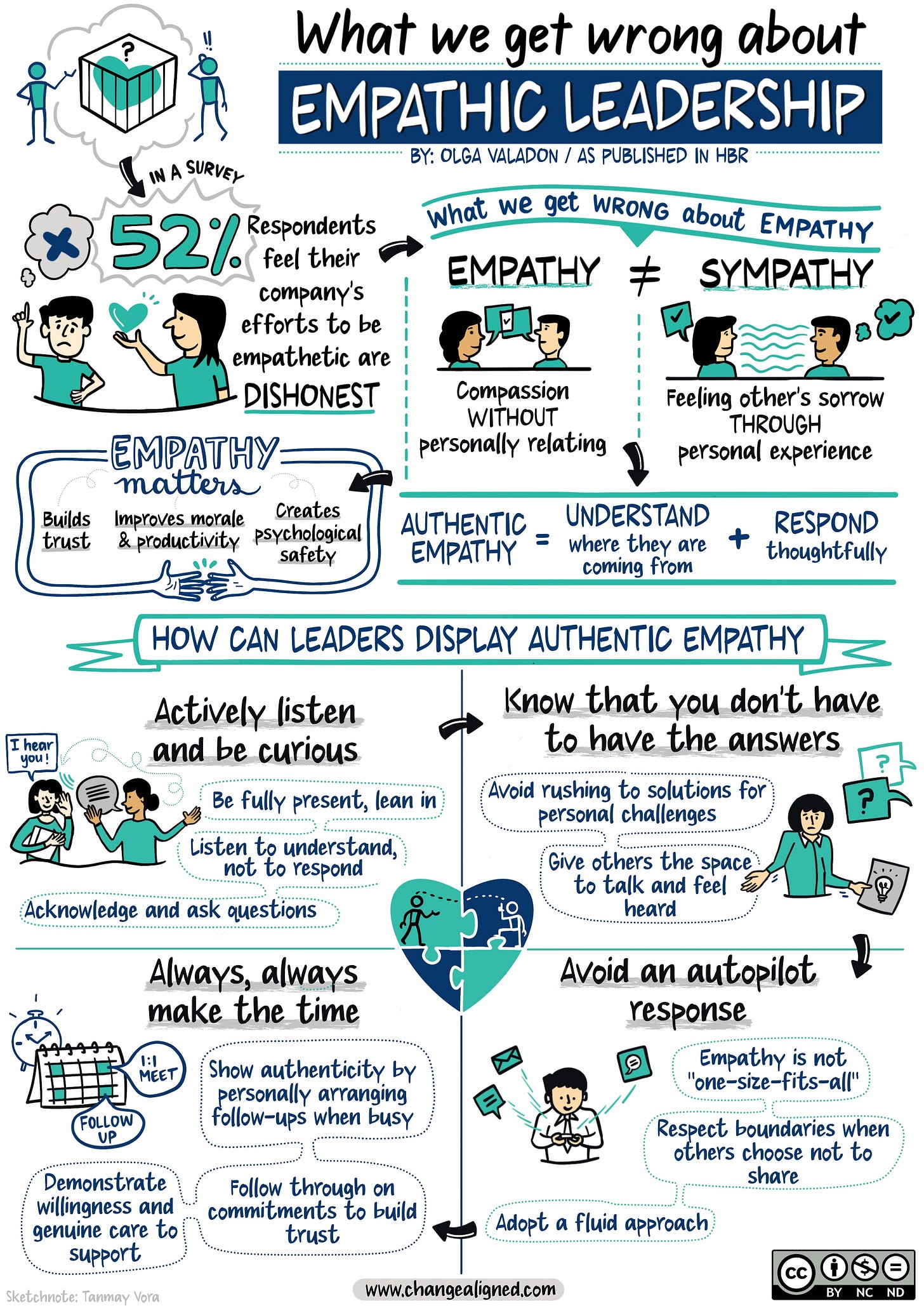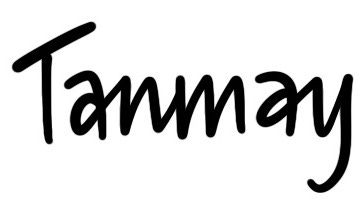On Being Authentically Empathic
Here's what it means to demonstrate authentic empathy when leading others.
Welcome!
In this edition, we delve into the superpower that empathy is, and how leaders can leverage it to build strong and lasting relationship with people around them.
But before we go further, consider:
Visiting my work and blog at QAspire.com (blogging since 2006)
Checking out Visual Leadership Pack of HD Sketchnotes – a compilation of high-resolution sketchnotes covering 90+ powerful (and timeless) ideas to elevate your leadership and learning game. Ideal for coaches, leaders and learners.
Support my work by considering a paid subscription.
From a “Notice” to “Noticing”
In one of the product teams I was responsible for, we had a technical lead (let’s call him Jay) who was known for his technical prowess, consistency and commitment to the work.
One fine day, his manager walked up to me with a concern regarding Jay’s lack of commitment in recent times. The manager was so upset that he wanted to give Jay, a final “notice” of under performance.
This came as a surprise to me, since I had very high regards for him over the years. I felt the need to connect with Jay to understand.
He walked into my room anticipating tough feedback. After the initial small talk, I asked him a few open-ended questions:
How have you been lately?
How’s work and life?
How can we help you do better?
These questions clarified my intent to listen. He opened up and confided to me that he was going through a messy divorce case which had taken a toll on his mental health and ability to contribute. He had to visit the court each week for court hearings.
While there was little we could have done in his personal context, I proposed that he works shorter hours or fewer days for the few months till he resolved the issues.
Later, once he was ready to work full time after about two months, we systematically coached Jay back into the context. He started shining bright again. He led a new team, delivered excellent outcomes on a major transformation initiative and got promoted as well.
This wouldn’t have happened if we had served him with a formal “notice” of under performance. What Jay really needed was someone “noticing” the cause of his under performance, not just a formal “notice”.
Jay needed compassion, empathetic listening and support. It is that simple, yet managers often forget to look deeper into people and their context.
“To empathize with someone’s experience, you must be willing to believe them as they see it and not how you imagine their experience to be.”
- Brene Brown
Empathic Leadership
Cultivating empathy at work is a leadership superpower in a world that is obsessed with speed, quick-fix solutions to complex problems, and instinctive decision-making around people.
What people truly require in times of uncertainty is careful listening, genuine understanding and a thoughtful response even when you cannot solve their issues directly - or “Authentic Empathy” as Olga Valadon describes in her recent HBR article titled “What We Get Wrong About Empathic Leadership”. I had the wonderful opportunity to bring ideas from this article to life in form of a sketchnote.
When dealing with people, we often struggle to respond thoughtfully when we have not been through the experience that the other is going through (in Jay’s case, a messy divorce).
For being authentically empathic, we just need to be compassionate, understand where the other person is coming from and then responding in a way that helps them - even if we don’t personally relate with their experience.
Authentically empathic leaders ask open ended questions and when people respond, keep the needle of conversation on them. As leaders uncover real issues people are facing, leaders need to adopt a non-judgmental frame of mind that is focused on helping. When we operate from this frame of empathy and understanding, we can respond in a way that helps our people as well as the organization.
When people are challenged or struggling, it is an opportunity to serve them.
Authentic empathy is about resisting the temptation to give them quick solutions, unwanted advice and worst yet, not being able to understand the issues they are facing because you were too busy/distracted.
While you can read the full article on HBR (must read), here is the sketchnote summary I created.
From My Journal
Intuition is our compass, but the problem is that the signals from our internal compass are subdued by all the noise around us.
Here’s a key question for us to reflect upon:
How can you detach and slow-down once in a while, so that you can truly connect with your inner self?
That’s it for this edition. Thank you for subscribing and reading.




